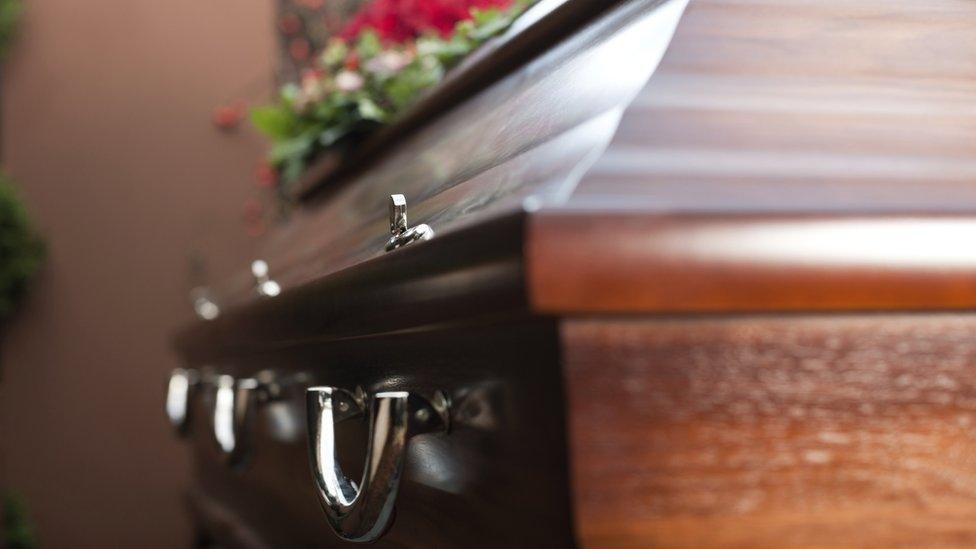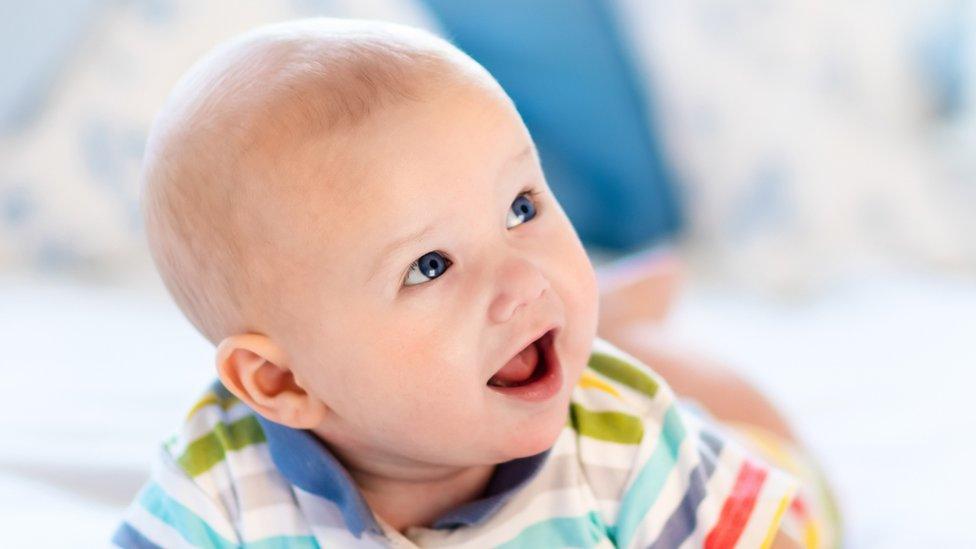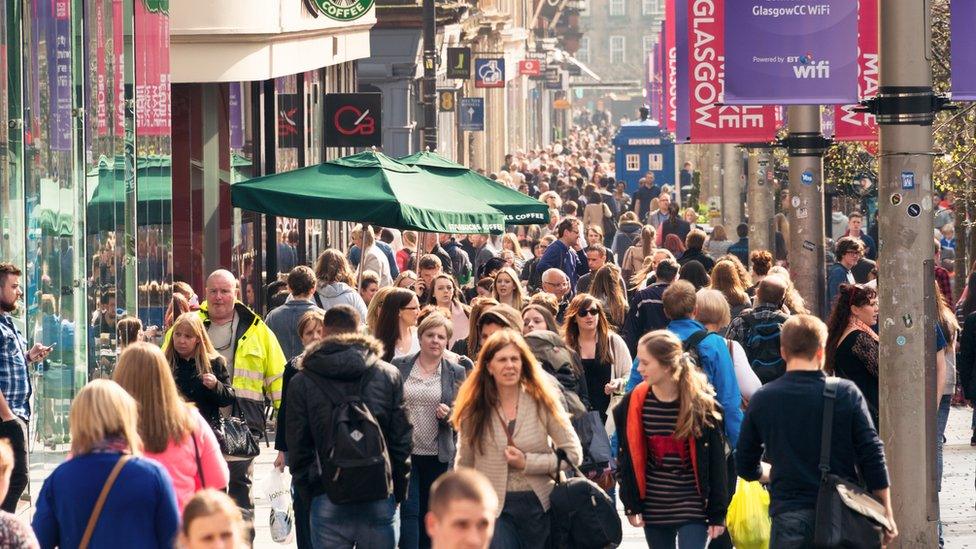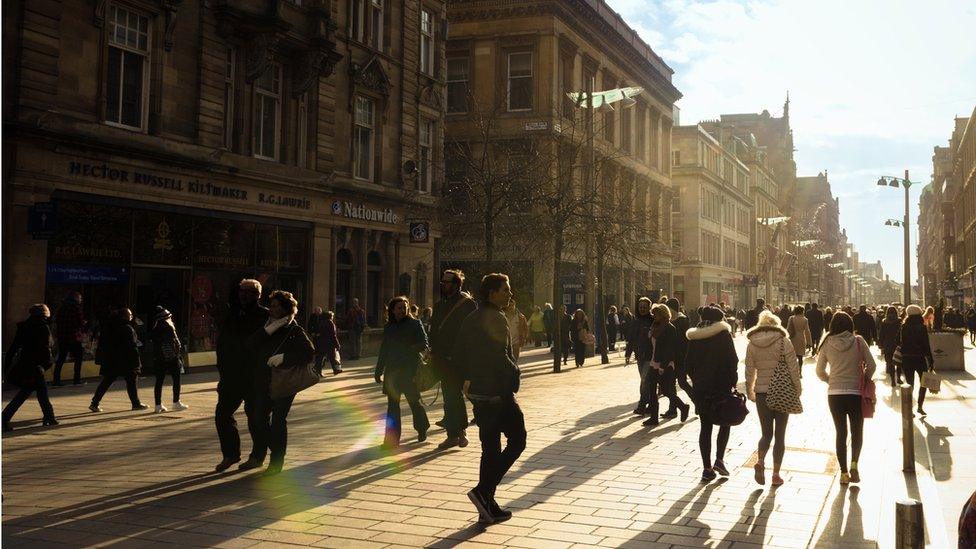Deaths outstrip births in Scotland in 2017
- Published

More people died in Scotland in 2017 than were born
The difference between the number of people dying and being born in Scotland has more than doubled in a year.
In 2017 there were 5,022 more deaths than births registered - a rise on the 2,240 difference recorded in 2016.
Annual statistics from the National Records of Scotland, external showed the widening of the gap was continuing.
The most common cause of death over the period was heart disease, followed by dementia and Alzheimer's, which accounted for 11.3% of all deaths.
Lung cancer was the third most common cause of death in Scotland.
Accidental deaths
The latest publication, Vital Events Reference Tables 2017, external, shows that at 57,883, the number of deaths registered was 1,155 (2%) more than in 2016.
The number of births registered was 52,861, a decrease of 1,627 (3%) on 2016 levels.
The figures showed that compared with 2016:
The total number of deaths from cancer rose by 1.9% to 16,207
The number of deaths from heart disease rose by 0.4% to 6,727
The number of deaths from dementia and Alzheimer's disease rose by 17.6% to 6,549 (partly due to a change in recording methods)
Deaths from respiratory diseases fell by 6.1% (by 442 to 6,854)
There were 3,927 deaths from strokes (a decrease of 5.2%)
The number of alcohol-related deaths dropped by 2% in 2017 to 1,120. This was less than in 2016 but higher than the previous four years.
There were 2,348 accidental deaths, an increase of 6% on 2016.
A total of 680 probable suicides were counted, 7% fewer than the previous year.
More than a quarter of all deaths were from causes (subject to age limits) considered potentially avoidable, either through public health interventions or effective healthcare.

The number of same-sex marriages fell slightly in 2017
Anne Slater, the acting registrar general for Scotland, said: "With a growing and ageing population, it may be expected that the number of deaths will increase.
"The age-standardised death rate adjusts for changes to the population structure and has had a greater decrease over time than the number of deaths.
"However, there has been no improvement in the age-standardised death rate in the last three years, suggesting that we may be reaching a turning point, or a plateau in the long-term downward trend in mortality."
The figures also detailed the number of marriages, with 28,440 taking place in 2017 - a decrease of 2.7% on 2016.
Of these, 982 were same-sex marriages (down 1.6% since 2016). There were 70 civil partnerships, the same number as in the previous year.
- Published8 March 2017

- Published19 April 2018

- Published2 August 2017
